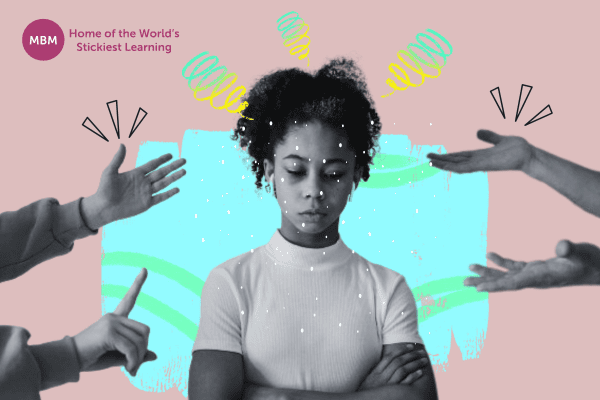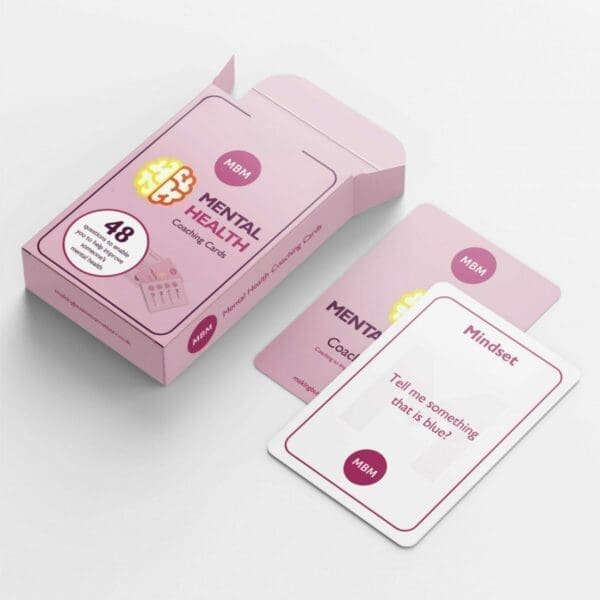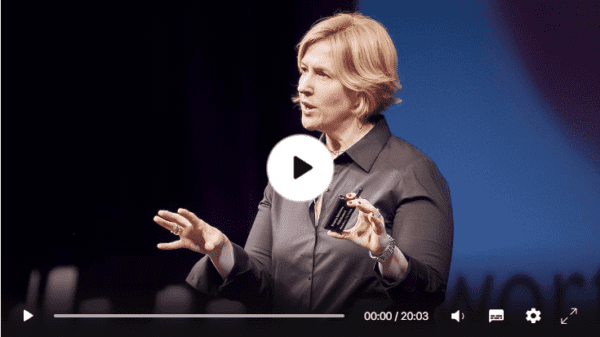Vulnerability is the New Sixpack, and That’s Official!
The power of vulnerability is something people need to embrace, to protect themselves from the knocks of everyday life. These knocks can send them into a downward spiral and cause psychological harm. If you’re aware you’re feeling threatened, don’t say it out loud in the meeting or the call, or send that email! Take a pause to think things through, get back in the moment and feel comfortable again.
How we recognise our vulnerability and manage our response, has a lot in common with how we use our self-awareness in principled negotiation. Specifically, it’s what prevents us from getting agitated. Instead, we listen to our feelings, safeguard ourselves and walk away until we’re ready to reopen the conversation. If our inner wisdom tells us there’s a deeper insight beyond the transaction itself, we can follow it through, whatever the transaction’s immediate outcome.
Vulnerability Has a Mixed Reputation in Business
People who don’t want to appear “weak,” often spend their lives avoiding and protecting themselves from feeling vulnerable or being perceived as too emotional. But the fear and discomfort inside them don’t go away and can become inwardly directed judgment and self-criticism. All that negative energy is very unhealthy.
Moving on from this, leaders and managers often deny their perceived vulnerabilities. When they have problems in their role, they may decide they need to change jobs and leave, so the company loses out. For the individual, these moments can feel unbearable, because they couldn’t cut the mustard, Even so, manage it well and the experience can often leave people feeling stronger afterwards.
What is the Power of Vulnerability?

Madeleine L’Engle is best known as a fantasy fiction writer, but her insights are heroic too. She says on the Crowe Associates website that the power of vulnerability is when we consider it to be a weakness. We think feeling our emotions to be a weakness, too. But being vulnerable and open about our feelings can connect us with others. It opens us up to love, joy, creativity, and empathy. Plus, when we look at what makes up our vulnerability, we quickly start to see the opposite of weak. Send the email, but take time to think about it, and even sleep on it.
The Power of Vulnerability Involves Knowing Your Pain Points
To harness the true power of your vulnerability, you need to know your weaknesses and the things that upset you and trigger you, and how much you can take. In short, get in tune with your emotions, and understand how they can affect you.
We’re not involved in negotiations every moment of every day, but we are interacting with people much of the time. Vulnerability means having the self-belief to walk away from an interaction or a situation. Or after giving it thought, ‘talk lean’ and state your position clearly. This is particularly important if you think the other person’s trying to get the advantage over you and cause you pain, rather than wanting to interact and listen and achieve the ‘Win-Win’ of co-creation and a great working relationship. As we said at the start, the trick is to realise what’s happening. Take a pause to regroup before you make your next move.
Stephen R. Covey writes about Win-Wins and ‘Co-creation’ very eloquently in his classic ‘The 7 Habits of Effective People.’ But it takes vulnerability to achieve it.
Accepting our vulnerability in these times empowers us to recognise that things could go wrong if we show our authentic selves and say what we feel. Even so, we should still take the risk, because we won’t grasp the opportunity otherwise, and not doing so will leave us feeling even worse.
We know we could lose, but we have self-compassion, and our gut instinct is that we’re doing the right thing. The other side may hold the power, but we’re prepared to defend our position, and explain it, given the chance to do so. Knowing our truth gives us the courage to press on.


>> Mental Health Coaching Cards <<
We Need to Talk More About This
To most people, a business blog like this probably isn’t the most obvious place they’d expect to find an article about how accepting our vulnerability can make us stronger. This idea has been popularised over the last few years by Brene Brown, an American researcher who basically studies human connection. She has spent two decades studying courage, vulnerability, shame, and empathy, and has been sharing her insights in TED Talks and best-selling books. During the pandemic, many people felt anxious, isolated and insecure, and Brene Brown’s talks and books became even more popular.
Most people probably only really think about vulnerability the way Brene Brown does when they’re trying to get back on track after a painful experience involving shame and a lack of self-esteem. However, as we’ve been saying, a challenging situation can bring on such feelings in people who normally think of themselves as quite stable.
In her famous TED Talk on the power of vulnerability, which she gave in December 2010, Brown talks about accepting the possibility of shame and having the courage and self-compassion to take risks, which could lead to joy and meaningful connections with others. It’s had over 60 million views and lasts no more than 20 minutes.

What Brene Brown Said in Her Ted Talk on the Power of Vulnerability:
In her TED Talk, Brene covers 4 key ideas:
1: Shame is a universal experience.
2: Courage and self-compassion allow us to embrace vulnerability.
3: Vulnerability leads to joy and meaningful connections with others.
4: Embracing vulnerability can help us lead fulfilling lives with wholeheartedness.
The takeout is, if you listen to your emotions and you go with them, you will feel a lot stronger.
Why is Vulnerability a Superpower?
Vulnerability is about connection and deep human-to-human connectedness. But it’s only your superpower when you learn to manage it and use it for good, like a Marvel superhero. The vulnerability occurs when you’re uncertain, at risk or exposed in some way. So no wonder for some people it feels uncomfortable.
Every time you do something new, have a difficult conversation, make a mistake, implement something unpopular or say no, you’re vulnerable. The only way you avoid it is to stay firmly in your comfort zone, work hard to keep things the same and hope you don’t get found out.
“In our culture,” says Brené Brown, “we associate vulnerability with emotions we want to avoid such as fear, shame, and uncertainty. Yet too often we lose sight of the fact that vulnerability is also the birthplace of joy, belonging, creativity, authenticity, and love.”
Vulnerability in Business is About Being Principled in Negotiation
In a moment, we’ll look at three real-life examples of people using their vulnerability in business. These will be freelances, speciality food suppliers and big manufacturers
Vulnerability means taking a risk, standing your ground and being true to yourself. It’s about saying to yourself, I’m going to be reasonable, even though I feel the other person isn’t. In principled negotiation, both parties have a common interest. That is, they want to achieve great things together. So it’s a win-win situation. But what should you do if there’s been a history of co-creation and suddenly the other side appears to be forgetting all that, and blatantly wants to create a win-lose situation for short-term gain? The power of vulnerability means being prepared to state your case and if necessary, walk away.
Vulnerability is strength when someone tries to push you into a win-lose situation, and you say no.
Here Are Some Real-life Examples of People Using the Power of Vulnerability in Business

Let’s start with the little guys, freelancers and consultants. These people can turn their vulnerability into strength. There’s the story of a freelancer who had been working for a client for several years. Then something unexpected happened and they felt vulnerable. The client hadn’t been paying that much for their work, compared to some of the other people they worked for, but the freelancer liked them. They enjoyed their work and delivered it punctually, and put a lot of effort and passion into it.
Time passed, and everything seemed fine. Then one day, the client sent the freelancer an email saying they had a new strategy and told the freelancer they would have to compete with other people to get more of the work they’d been doing, which the client had praised them for. The note mentioned also needing to use new technology, which hadn’t been mentioned previously. It required knowledge the freelance didn’t have, and they realised they would need to acquire it through training. And after all that, the rate would stay the same.
The Power of Vulnerability Means Turning Frustration Into Compassion
Reading the note again, the client expected the freelancer to feel excited about the new strategy because it was a new beginning. The freelance decided to take their time in replying. They pondered, drafted a friendly email, and requested a phone chat. They sent the email and told themselves that if they had to walk away, they would, and they’d think seriously about having training in the new technology in case it happened with another client as well. It took a conversation, but in the end, the client saw things from the freelancer’s side, and it was all resolved.
Companies of Different Sizes Can Also Turn Their Vulnerability Into Strength
In the speciality food and drink sector, a small supplier was approached by a big retailer who wanted to stock their product but expected them to increase their production and change the way they worked, to get a listing in their stores in one area of the country. The customer had been interested in the supplier in the first place because they saw their products were artisan and premium, something the big, mainstream, national brands in that category didn’t have. That was still the case, but to deliver it, the customer expected the supplier to be like the national brands. In the end, the supplier walked away.
There’s a similar story of a big grocery manufacturer saying to a big retailer, sorry, we don’t want to do business with you because you’re being unreasonable. The big retailer got all macho about it and delisted the products. The consumers got cross because they couldn’t find their favourite brands in the supermarket, so they had to go somewhere else. Meanwhile, back at the head office, the big manufacturer’s leadership supported their negotiating team. They knew the big retailer’s reputation for being like this. The story even got into The Grocer, and people admired the big manufacturer for standing their ground.
What Does Vulnerability Mean Personally?

Outside of work, relationship breakdown can make people feel very vulnerable. The relationship support providers Relate say being vulnerable means being in a position where other people can hurt you. In their words, it often means expressing the sides of yourself about which you have the least confidence or certainty and allowing others to respond to them. Vulnerability means exposing yourself, surrendering control, and facing rejection. But it’s still your best option.
What’s the Problem With Vulnerability at Work?
It’s like this, especially for men, but also for women as more of them come into senior roles. Do you sometimes feel you’ve spent your whole career perfecting a veneer of outer calm, while internally racing for answers and trying not to look weak or vulnerable? Well, you won’t be alone. We’ve been led to believe that this is what good leaders do. They cover up their vulnerabilities.
At best, overrating toughing it out, powering through, and being a tower of strength is probably downright harmful to your own well-being. Even more, it’s harmful to those you lead. In the short term, toughness might help you through a tricky situation. But in the longer term, it drives you towards behaviour that masks feelings, creates barriers, and potentially reduces team trust. Vulnerability fosters good emotional and mental health. It’s also a sign of courage. We become more resilient and brave when we embrace who we truly are and what we are feeling. Lastly, being vulnerable can help us foster better connections and relationships with others.
And Finally – Remember the Main Point of the Power of Vulnerability

Vulnerability fosters good emotional and mental health. Vulnerability is the only way to get to know our authentic selves. It fosters growth and empowers self-care over people-pleasing. Vulnerability helps us bring to light all our emotions and process them. Believing in the power of your vulnerability is believing in yourself, phenomenally, unapologetically, and wholly. Vulnerability is the driving force of our strength and connection. It’s brave. It’s tender. And it’s our might and driving force. But, we’ve turned it into a weakness, and as a result, we’re harming ourselves.
In her book The Power of Vulnerability, Brene Brown says vulnerability offers both an invitation and a promise. That is, when we drop our armour, vulnerability leads to purposeful and meaningful experiences.
Clearly being vulnerable can come with risks. But coming back to our stories about the freelancer, the speciality food company and the big manufacturer, the crucial thing about vulnerability – and the thing that makes it such a brave move to embrace – is that it’s only through taking these risks that you can gain the rewards. So, listen to your feelings before you answer that email or make that call. And think about the connection you want to make, and be bold.




